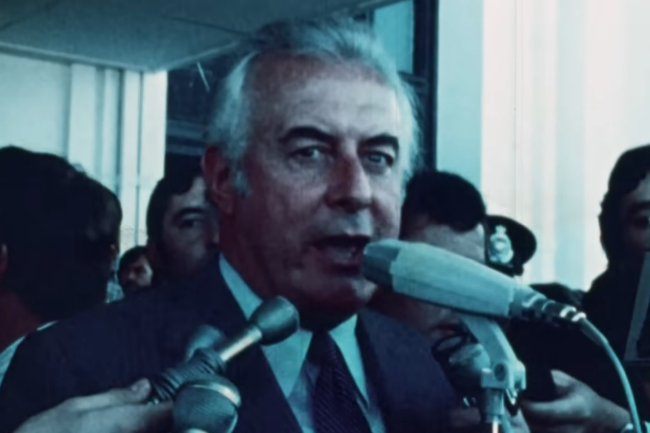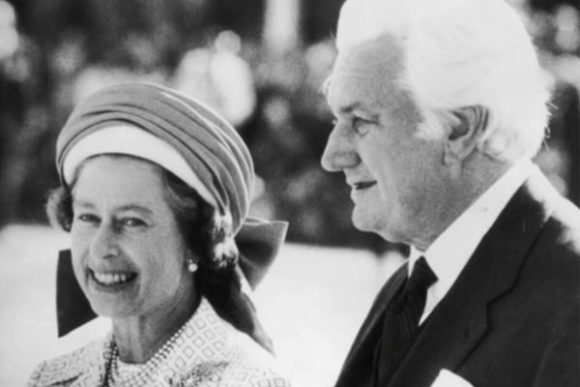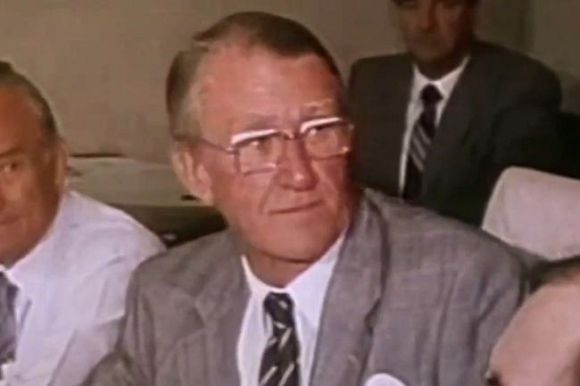Documents reveal how Australia’s covert role in Chile’s 1973 coup fed the tensions that ultimately consumed the Whitlam Government, writes Jemma Nott.
AS PRESIDENT TRUMP begins to prepare for a potential invasion of Venezuela, it is well overdue that we learn the historical lessons of Western interventionism.
Imperialism is a boomerang and perhaps the starkest example of this in Australia is Chile. Fifty years on from the Whitlam Dismissal and we still don’t really tell the story of its genesis.
In June of 2021, declassified government documents released from the National Security Archives revealed that the Australian Government was supporting the CIA in the Chilean coup. Many Chileans today still have 11 September 1973 etched into their historical consciousness as the day that Salvador Allende, a socialist leader, was overthrown by the fascist General Augusto Pinochet.
However, a declassified CIA document reveals in extensive detail how the coup was planned and orchestrated from across the pond by the CIA. The CIA funded opposition groups, right-wing media and strikes in support of Pinochet. Indeed, immediately after Allende’s election, Agustín Edwards Eastman, owner of El Mercurio and one of Chile’s richest men, met secretly with CIA director Richard Helms and Henry Kissinger and pushed for a pre-emptive coup to stop Allende from taking office.
A Chilean left-wing/critical source (Róbinson Rojas’s The Murder of Allende) goes further and explicitly links economist and investment banker David Rockefeller's manoeuvring to Edwards’ funding and strategy, arguing that Rockefeller advised on economic steps to guarantee measures favourable to U.S. capital and cites El Mercurio’s role in that strategy. A group, which included Anaconda, ITT and PepsiCo, offered to put up US$500,000 (AU$769,400) to influence the Chilean Congress not to confirm Allende after he won the 1970 Election.
In 1971, prior to Gough Whitlam’s election, the CIA asked the Australian Secret Intelligence Service (ASIS) to establish an espionage operation in Chile targeting Allende’s government. The operation was run entirely to support U.S. intelligence interests. Reports were routed directly to Langley.
The ASIS file titled Memorandum of Conversation: Review of the MO9 Station in Santiago shows Whitlam ordered it to shut down in April 1973, but gives one instruction: “Do nothing that will offend the CIA.” The CIA, in response, expressed deep concern at the closure order and ASIS Director-General William T Robertson pressured Whitlam to reverse it.
In July of 1973, ASIS reports state that the station was formally closed and that records were destroyed.
Immediately after the coup in Chile, there began a process of rapid economic liberalisation and it was essentially the world’s first experiment in the insertion of a Western hand into a foreign country’s markets. Chile, under Pinochet, privatised banks, mining companies, utilities (water, electricity, telecommunications), ports, steel and manufacturing, airlines and the pension system.
By the late 1980s, Chile had sold more state assets than any other country on Earth except the UK. The military junta cut public spending by ~27 per cent, cut real wages by ~30 per cent, removed subsidies, froze the minimum wage and eliminated public housing, food programs and social supports.
Whitlam knew that Pine Gap was partly run by the CIA (not just the National Security Agency or Department of Defence) and charged the CIA station chief in Australia (Richard Stallings) with using an Australian cover address funded by CIA money. Whitlam prepared to expose Stallings’ CIA identity to Parliament.
CIA Director William Colby communicated through backchannel diplomatic messages that this would be catastrophic for U.S.–Australia relations. According to State Department cables later released: “The Prime Minister’s actions are causing the gravest concern at the highest levels.” This is where the relationship breaks.
The Pine Gap operating agreement was due to expire on 10 December 1975. Whitlam had not yet signed the renewal. U.S. officials (State Department cables) expressed fear that Whitlam might cancel or renegotiate it in retaliation for CIA pressure over Chile and PNG.
Governor-General John Kerr was in communication with Sir Martin Charteris, the Queen’s Private Secretary. UK documents show Kerr was warned that if Whitlam announced CIA involvement at Pine Gap, it could threaten Anglo–American intelligence sharing.
According to CIA officer Victor Marchetti, in an early report by John Pilger:
“This threat to close Pine Gap caused apoplexy in the White House... a kind of Chile [coup] was set in motion.”
Not long after Whitlam was dismissed, the wave of neoliberalism took its first roots in Australia. Malcolm Fraser implemented the Campbell Committee, which began significant economic liberalisation in Australia, which recommended floating the dollar, full financial deregulation and allowing foreign banks in. He implemented a wage freeze and began the growth of anti-union tactics in mining and construction.
The process of deindustrialisation began. Most of the Western world, in fact, was beginning its first entry into neoliberalism as Ronald Reagan eventually took power in the United States and Margaret Thatcher in the UK.
Chile, in a very direct, ironic way, served as the template for what corporate power was attempting to make happen within its own borders in the West. Imperialism is thus like a boomerang — even if it hurts someone overseas first, or you didn’t sign the orders, it has a funny way of ending up at your doorstep.
Jemma Nott is a Political Economy post-graduate student at the University of Sydney and a freelance writer.
 This work is licensed under a Creative Commons Attribution-NonCommercial-NoDerivs 3.0 Australia License
This work is licensed under a Creative Commons Attribution-NonCommercial-NoDerivs 3.0 Australia License
Support independent journalism Subscribe to IA.

Related Articles
- Gough Whitlam's enthusiasm for reform has left a lasting legacy
- Political lessons from history in becoming a republic
- Questions remain over U.S. and CIA role in Whitlam's dismissal
- JOHN PILGER: The forgotten coup against 'the most loyal ally'
- 'Distortion': How the Palace airbrushed Sir John Kerr's memoirs













